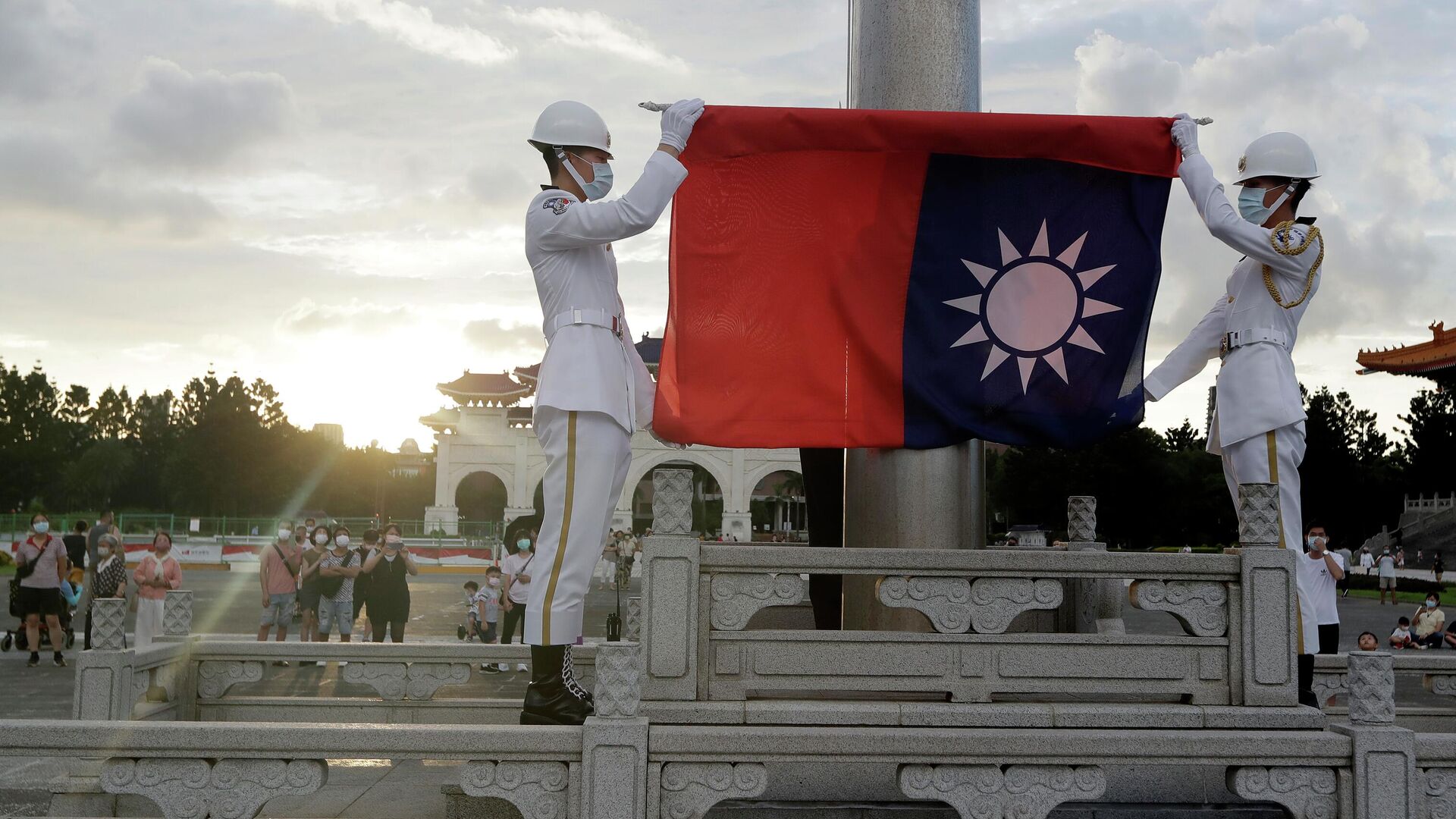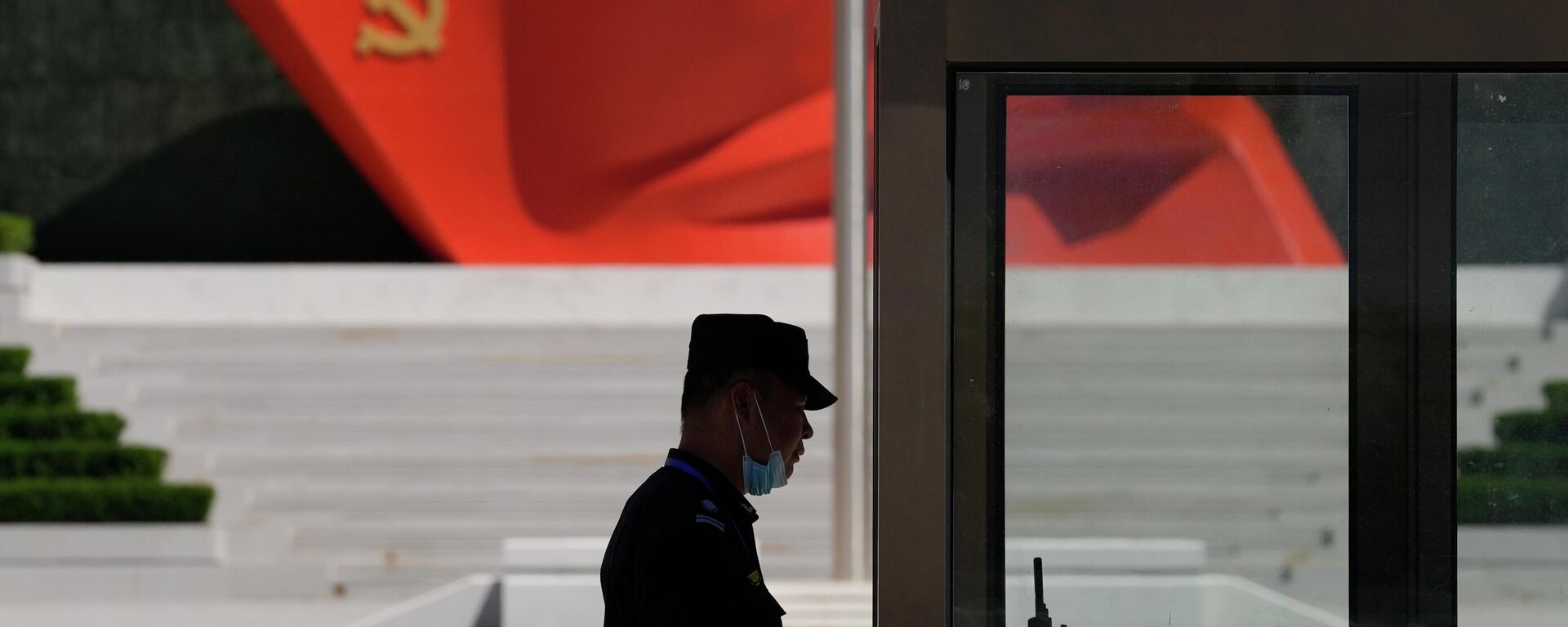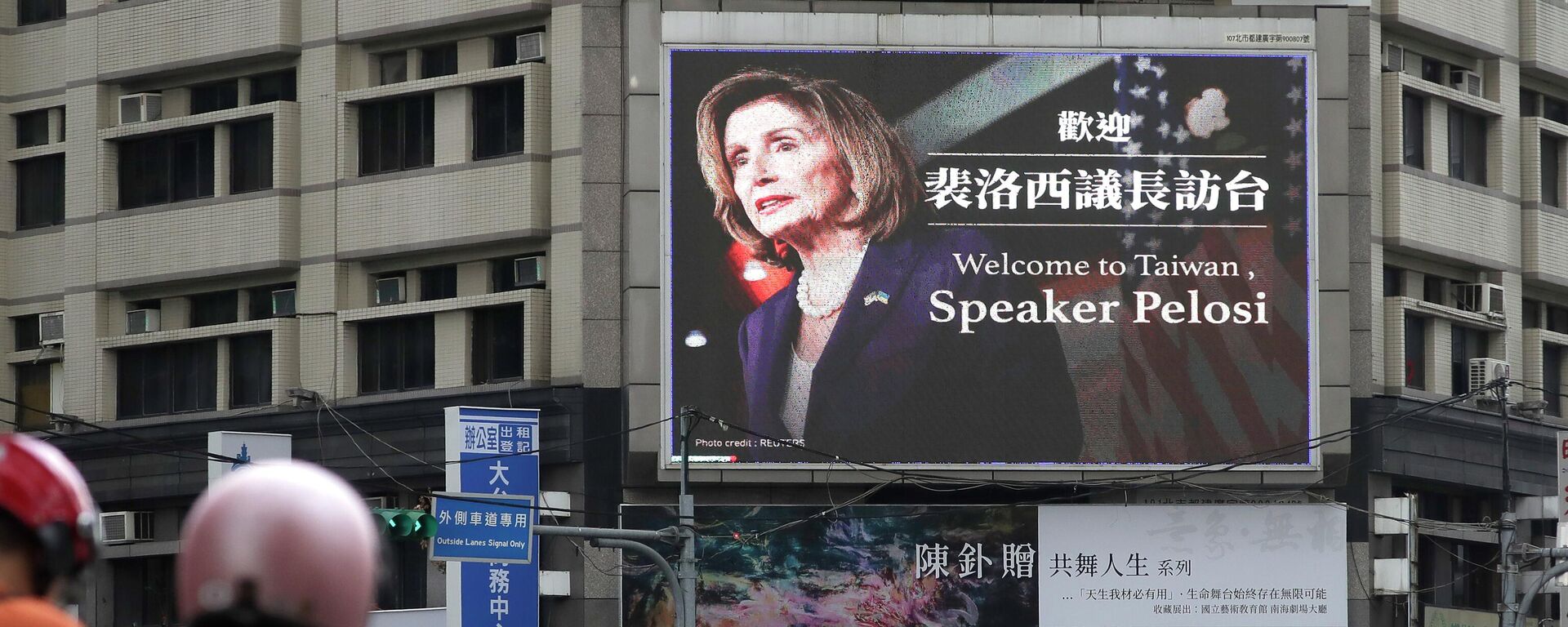Senate Bill Offering Taiwan ‘Non-NATO Ally’ Status Could Collapse Asia’s Security Architecture: Prof
20:46 GMT 14.09.2022 (Updated: 12:45 GMT 19.06.2023)

© AP Photo / Chiang Ying-ying
Subscribe
The legislation's advancement comes amid months of escalating tensions between China and the United States over Taiwan sparked by promises by President Biden to "defend" the island in the event of Chinese "aggression," and by senior US lawmakers' provocative series of visits to Taipei in contravention of multiple treaties on Sino-US relations.
If the bipartisan bill being floated by the Senate proposing sending Taiwan billions of dollars in new security assistance and offering the renegade Chinese province 'major non-NATO ally' status becomes law, it will result in a major reevaluation of China-US relations, and will undermine security in Asia, warns Zhu Feng, director of the Institute of International Relations at Nanjing University.
"If the bill passes it will undoubtedly have a huge impact on Sino-US relations, since its provisions violate documents signed by the governments of the two countries, such as the 1972 Shanghai Communique, and the Communique of August 17, 1982 [on Arms Sales to Taiwan]," Zhu told Sputnik in an interview.
"The essence of these documents was the 'One China' principle - that is, that the United States must not have official contacts with the province of Taiwan. The Senate bill continues to blur the One China principle, making the US's position of 'strategic ambiguity' more 'clear'," the academic said.
Turning Taiwan into a 'major non-NATO ally' would be a major departure from years of US policy, and if China is included in sanctions proposed in the legislation, "it will undoubtedly provoke enmity and disrupt the peaceful exchanges between the two sides of the Taiwan Strait and encourage the island's separatist forces. Therefore, if the bill is passed, it will cause great harm to Sino-US relations," Zhu stressed.
The scholar warned that if the legislation does become law, it will make the weeks of Chinese military drilling and blustery statements from Beijing seem like a trifle, with the People's Republic effectively forced to give a strong rebuff, which in turn will jeopardize the entire security architecture of Asia.
"This bill poses a huge challenge for the security of the Asian region, because if relations between the two sides of the Taiwan Strait continue to deteriorate as a result of US actions, the issue of Taiwan province will become more acute, the existing balance of regional security may be upset, and the situation will get out of control. If the Taiwan issue results in a rapid escalation of Sino-US tensions and leads to the involvement of third parties, it will cause great damage to regional security and stability," Zhu stressed.
Controversial Bill
The US Senate Foreign Relations Committee advanced the 'Taiwan Policy Act of 2022' on Wednesday. If passed by Congress and signed into law by President Biden, the legislation will grant Taiwan $4.5 billion in new US security assistance, and a $2 billion loan guarantee for the purchase of American military equipment. The legislation also proposes designating Taiwan a "Major Non-NATO Ally."
The bill passed the committee 17 to 5, and has now been advanced for consideration by the full Senate. It has received support from senior lawmakers from both sides of the aisle, and is sponsored by Democratic Senator Bob Menendez and his hawkish Republican counterpart Lindsey Graham.
"We must get ahead of a future crisis and give Xi Jinping reasons to think twice about invading or coercing Taiwan. I hope the full Senate will vote on this legislation soon," Foreign Relations Committee member Jim Risch said said in a statement following the bill's advancement.
Significantly, the bill directs the US government to engage with the "democratic government of Taiwan," deeming the latter to be the legitimate representative of the island’s inhabitants and prohibiting restrictions on engagements between US officials and their Taiwanese counterparts. It also calls on the US Secretary of State to allow the display of symbols of 'Taiwanese sovereignty' by the island's officials, including their flag, and establishes "de facto diplomatic treatment for Taiwan equivalent to other foreign governments."
These measures would be a direct violation of the US commitment to the One China principle and the communiques on US-China relations, which prohibit Washington from maintaining formal diplomatic ties with Taipei, and recognizes the People's Republic as the sole sovereign state under the name 'China' (Taiwan formally calls itself the 'Republic of China' but the US dropped formal recognition and closed the Taipei Embassy in 1979).
The bill also directs the Pentagon to establish a training program with Taiwan to improve defense capabilities and force interoperability, directs the secretary of state to address "disinformation and propaganda" related to Taiwan, and to submit a strategy for addressing alleged economic coercion by China against countries which increase support for Taiwan.
The bill’s wording back-peddles on the violations of documents which serve as the backbone of China-US ties by assuring that the legislation should not to be construed as entailing the restoration of diplomatic relations with Taiwan or altering the US position on its international status.
The draft legislation also reaffirms the Taiwan Relations Act and the Six Assurances, the principles upon which the US policy of 'strategic ambiguity' toward the island are based (i.e. no formal recognition, no formal alliances, but the implication that Washington could intervene in a Taiwan crisis).
Just in Time to Exacerbate Tensions
The legislation's advancement comes against the background of raging China-US tensions over the Taiwan issue, with relations cooling almost immediately after President Biden stepped into office thanks to the invitation of the de facto Taiwanese ambassador to his inauguration ceremony. In the year-and-a-half since, Biden has repeatedly challenged the US's strategic ambiguity policy by pledging to come to Taipei's defense in the event of Chinese "aggression," only to be corrected by his aides, who assured Beijing that US policy has not changed.
Tensions escalated further in August, when House Speaker Nancy Pelosi, the third most powerful official in Washington, visited Taipei. The Chinese Foreign Ministry slammed the trip as a blatant violation of the agreements underpinning China-US ties, while the People's Liberation Army kicked off a series of war games around Taiwan.




